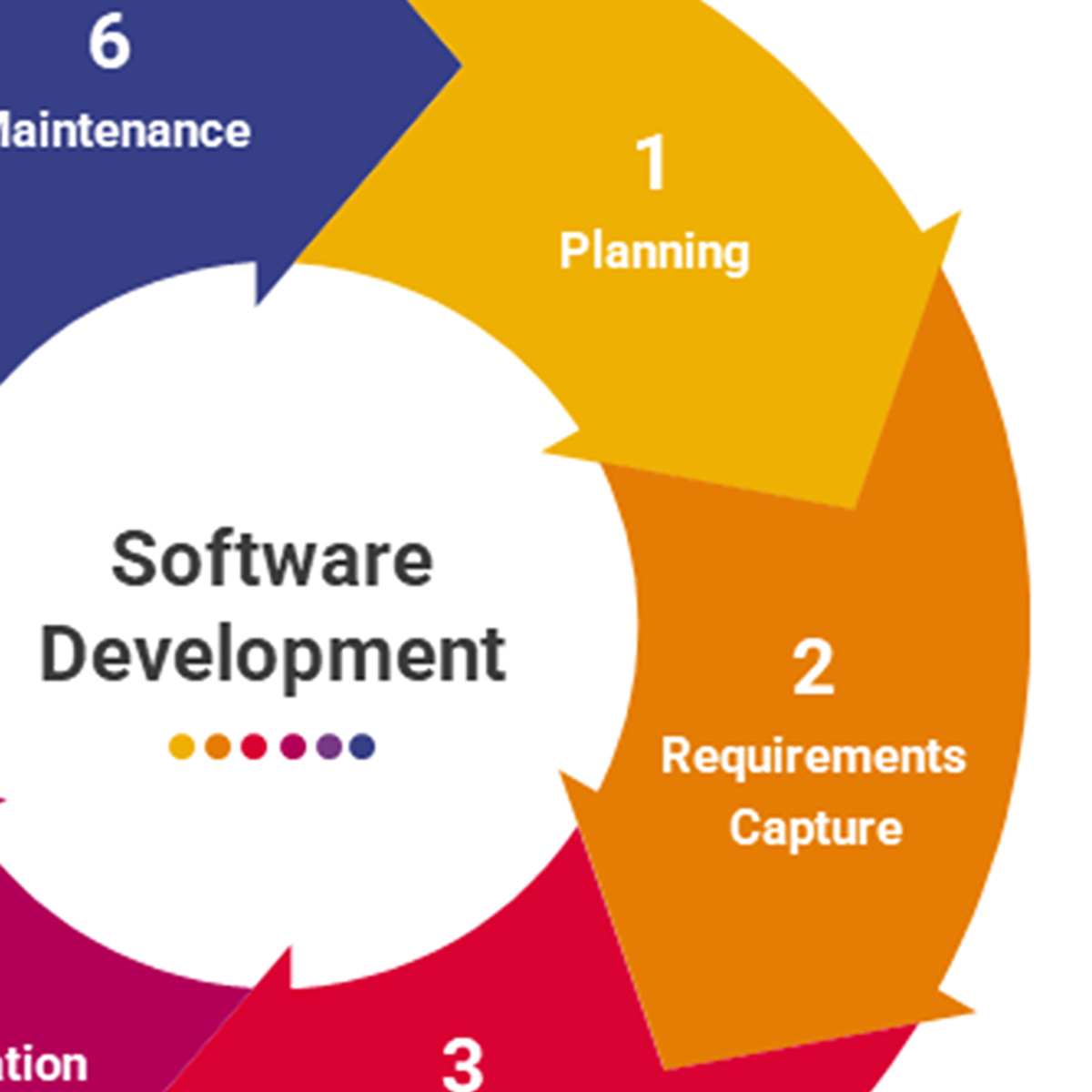Requirements Engineer
Exploring a Career as a Requirements Engineer
A Requirements Engineer plays a pivotal role in the development of systems, software, and processes. At its core, this profession involves identifying, documenting, validating, and managing the needs and expectations—the 'requirements'—for a project. They act as a crucial bridge between stakeholders (like clients or end-users) and the development team (engineers, designers, programmers), ensuring everyone understands what needs to be built and why.
This role is exciting because it demands a unique blend of analytical thinking, communication prowess, and technical understanding. Requirements Engineers get to delve deep into how businesses operate and how users interact with technology, translating complex needs into clear, actionable specifications. The satisfaction comes from seeing abstract ideas transform into tangible solutions that solve real-world problems, knowing you were instrumental in defining the blueprint for success.
If you enjoy structured thinking, facilitating discussions, solving puzzles, and ensuring clarity in communication, a career in requirements engineering might be a rewarding path. It offers the chance to work on diverse projects across various industries, constantly learning and adapting to new challenges and technologies.
What is Requirements Engineering?
Defining the Discipline
Requirements Engineering (RE) is a systematic and disciplined approach to specifying and managing requirements throughout the lifecycle of a system or software product. Its primary goal is to ensure that the final product accurately reflects the needs of its users and stakeholders and fulfills its intended purpose effectively and efficiently. Think of it as creating the architectural plans before constructing a building; without clear, complete, and correct plans, the construction is likely to face significant issues.
The core objectives involve understanding what users need, translating these needs into precise specifications, ensuring these specifications are feasible and consistent, and managing changes to these specifications as the project evolves. Good requirements engineering is widely recognized as a critical factor for project success, helping to prevent misunderstandings, reduce rework, and align the final product with business goals.
This field sits at the intersection of business analysis, systems engineering, and software development, demanding both technical acumen and strong interpersonal skills. It requires professionals who can understand complex domains, communicate effectively with diverse groups, and maintain meticulous attention to detail.
A Brief History and Evolution
The need for formally defining requirements emerged as software and systems projects grew in complexity. Early software development often suffered from poorly understood or documented needs, leading to project failures, budget overruns, and systems that didn't meet user expectations. The infamous Standish Group Chaos reports highlighted unclear requirements as a major cause of project challenges.
Initially, requirements activities were often embedded within the roles of programmers or system designers. However, as the importance of getting requirements right became evident, dedicated roles and specialized processes began to emerge. The rise of structured methodologies like Waterfall in the latter half of the 20th century emphasized upfront requirements definition.
More recently, the advent of Agile methodologies has shifted the practice towards iterative requirements discovery and refinement, emphasizing collaboration and adaptability. Despite methodological shifts, the fundamental need for understanding and managing requirements remains paramount, leading to the established discipline and dedicated role of the Requirements Engineer we see today.
Where Requirements Engineers Make an Impact
Requirements Engineers are vital in nearly any industry that develops complex systems or software. In Information Technology (IT), they are central to software development projects, web applications, and enterprise systems. They ensure that software meets business objectives and user needs, whether for internal operations or customer-facing products.
In aerospace and defense, the rigor of requirements engineering is critical for safety and mission success. Developing aircraft, spacecraft, or defense systems involves incredibly complex requirements with stringent safety and performance standards. Requirements Engineers ensure these are meticulously defined, tracked, and verified.
Healthcare is another key area, particularly in the development of medical devices and health information systems. Compliance with regulations (like FDA guidelines or HIPAA) adds another layer of complexity. Requirements Engineers help ensure that these systems are safe, effective, and compliant, directly impacting patient care and outcomes. Other sectors like finance, automotive, telecommunications, and manufacturing also rely heavily on skilled requirements professionals.
To succeed in regulated or complex fields, understanding specific industry standards is often necessary. For instance, those interested in railway systems might explore specialized knowledge.
This course provides insights into safety and systems engineering within the railway domain, highlighting the importance of requirements in safety-critical systems.
The Day-to-Day Role and Core Responsibilities
Eliciting and Analyzing Needs
A primary duty of a Requirements Engineer is requirements elicitation – the process of discovering the needs and constraints of stakeholders. This involves active listening, asking probing questions, and employing various techniques like interviews, workshops, surveys, observation, and document analysis. The goal is to uncover not just the stated wants, but also the underlying needs and context.
Once requirements are gathered, they must be analyzed. Analysis involves clarifying ambiguities, resolving conflicts between different stakeholders' needs, identifying missing information, and ensuring requirements are feasible and testable. Requirements Engineers break down high-level goals into detailed specifications, often modeling processes or systems to gain deeper understanding.
This phase requires strong analytical and problem-solving skills. It's about making sense of potentially vast amounts of information and structuring it logically. Effective elicitation and analysis prevent costly errors later in the development cycle.
These courses provide foundational knowledge and practical techniques for eliciting and analyzing requirements effectively, crucial skills for any aspiring Requirements Engineer.
This book offers a comprehensive look at the process of defining software requirements, covering elicitation and analysis in detail.
Documenting and Validating Requirements
Clear documentation is essential. Requirements Engineers translate gathered information into formal documents like Software Requirements Specifications (SRS), use cases, user stories, or models. The chosen format depends on the project methodology (e.g., Agile vs. Waterfall) and organizational standards. Good documentation is unambiguous, complete, consistent, and understandable to all relevant parties.
Validation is the process of confirming that the documented requirements accurately reflect stakeholder needs and intentions. This often involves reviews, walkthroughs, and prototyping, where stakeholders provide feedback on the specifications before significant development effort begins. Validation ensures that the team is building the *right* product.
Verification, often confused with validation, checks if the system *meets* the specified requirements (building the product *right*). While primarily a testing activity, Requirements Engineers often participate in defining acceptance criteria used for verification. Meticulous documentation and rigorous validation are key to preventing scope creep and ensuring the final product aligns with expectations.
These courses focus specifically on the crucial skill of writing clear and effective requirements documents, including using standard notations like UML.
This book provides practical guidance on the entire requirements engineering process, including documentation and validation best practices.
Managing Requirements and Stakeholder Collaboration
Requirements are rarely static; they often change throughout a project due to evolving business needs, technical constraints, or new insights. Requirements management involves tracking the status of requirements, managing changes systematically, and maintaining traceability – linking requirements to design elements, code, and test cases. This ensures that changes are controlled and their impact understood.
Effective collaboration is the lifeblood of requirements engineering. Requirements Engineers constantly interact with diverse stakeholders: clients, end-users, project managers, developers, testers, architects, and business leaders. They facilitate communication, negotiate priorities, manage conflicting expectations, and ensure everyone shares a common understanding of the project goals.
Strong communication, negotiation, and facilitation skills are therefore indispensable. Requirements Engineers must be adept at translating technical jargon for business stakeholders and business needs for technical teams, acting as a central communication hub for the project.
This comprehensive book delves into managing requirements effectively throughout the project lifecycle.
Distinguishing Requirement Types
Requirements Engineers work with different levels and types of requirements. Understanding these distinctions is crucial for effective analysis and documentation. Common categories include:
Business Requirements: These define the high-level goals and objectives of the project from the organization's perspective. They answer the "why" – why is this project being undertaken? What business value will it deliver? Example: "Increase online sales conversion rate by 15% within one year."
User Requirements (or Stakeholder Requirements): These describe what users need to be able to do with the system to achieve their goals or the business objectives. They often take the form of use cases or user stories. Example: "As a shopper, I want to be able to save items to a wishlist so I can purchase them later."
System Requirements: These provide detailed specifications of *how* the system should behave to meet the user and business requirements. They are often broken down into:
- Functional Requirements: Define specific functions or behaviors the system must perform. Example: "The system shall allow users to add items to a shopping cart."
- Non-Functional Requirements (NFRs): Define quality attributes like performance, security, usability, reliability, and maintainability. Example: "The search results page must load in under 2 seconds."
Requirements Engineers must elicit, analyze, and document requirements at all these levels, ensuring they are aligned and traceable from high-level business goals down to specific system functions.
Educational Pathways to Requirements Engineering
Relevant Undergraduate Degrees
While there isn't typically a specific "Requirements Engineering" undergraduate degree, several fields provide a strong foundation. A Bachelor's degree in Computer Science is common, offering technical depth in software development principles, algorithms, and system design, which helps in understanding feasibility and interacting with development teams.
Systems Engineering programs are also highly relevant, focusing on the design and management of complex systems over their life cycles, naturally incorporating requirements definition and management. Business Information Systems or Management Information Systems degrees blend business acumen with IT knowledge, useful for understanding business needs and processes.
Other engineering disciplines (like Electrical or Mechanical Engineering) can be suitable, especially for roles in specific industries (e.g., automotive, aerospace). Degrees with strong analytical components, like Mathematics or Physics, coupled with relevant coursework or experience, can also provide entry points. Regardless of the specific major, coursework in technical writing, communication, logic, and project management is highly beneficial.
Graduate Studies and Specializations
For those seeking deeper expertise or aiming for research or leadership roles, a Master's degree can be advantageous. Some universities offer Master's programs specifically in Systems Engineering or Software Engineering with specializations or dedicated courses in Requirements Engineering. These programs delve deeper into advanced RE techniques, modeling languages, formal methods, and requirements management strategies.
A Master's degree can also be a pathway for individuals transitioning from less technical undergraduate backgrounds. An MBA (Master of Business Administration) combined with technical experience can also be valuable, particularly for roles requiring a strong understanding of business strategy and stakeholder management at higher levels.
Research-oriented individuals might pursue a Ph.D. focusing on Requirements Engineering, contributing to the advancement of methodologies, tools, and theoretical understanding within the field. This path typically leads to academic positions or roles in industrial research labs.
Consider exploring advanced topics through foundational courses in related areas like systems analysis and design.
Key Foundational Coursework
Regardless of the specific degree path, certain subjects form the bedrock of a Requirements Engineer's knowledge. Courses in Systems Analysis and Design teach how to analyze complex problems, model systems, and design solutions, often covering requirements gathering techniques.
Software Engineering Principles provide an understanding of the software development lifecycle, various methodologies (Agile, Waterfall), quality assurance, and the role requirements play throughout the process. Familiarity with programming concepts, databases, and basic architecture is also helpful.
Project Management courses cover planning, scheduling, risk management, and stakeholder communication – all essential for managing the requirements process within a larger project context. Finally, Technical Writing and Communication courses are invaluable for learning how to document requirements clearly, concisely, and unambiguously, and to present information effectively to diverse audiences.
These courses offer introductions to software engineering processes and project management, highlighting the context in which requirements engineering operates.
Leveraging Online Learning and Self-Study
Is a Career Transition Through Self-Study Possible?
Transitioning into requirements engineering through self-study and online learning is certainly feasible, especially if you already possess related skills or experience, perhaps from roles in business analysis, quality assurance, technical support, or even project coordination. It requires dedication, discipline, and a structured approach to learning the necessary concepts and techniques.
Online courses offer flexibility and accessibility, allowing you to learn at your own pace. Platforms like OpenCourser aggregate thousands of courses covering relevant topics, from foundational business analysis to specific modeling languages like UML and requirements management tools. Supplementing coursework with practical application is key.
Building a portfolio, networking with professionals in the field, and potentially seeking entry-level roles or internships can bridge the gap between learning and employment. While a formal degree provides a structured path, motivated individuals can carve out a successful career through focused independent learning, particularly in industries where practical skills are highly valued.
For those considering this path, remember that persistence is crucial. It might take time and effort to build the necessary skills and convince employers, but it's an achievable goal. Embrace the learning process and seek opportunities to apply what you learn.
Prioritizing Essential Skills for Online Learners
For self-learners, focusing on the most critical skills is essential. Strong analytical and problem-solving abilities are paramount – learn techniques for breaking down complex problems and evaluating potential solutions. Develop excellent communication skills, both written and verbal; practice active listening, clear articulation, and tailoring communication to different audiences.
Master core requirements elicitation techniques like interviewing, workshops, and surveys. Learn how to document requirements effectively using common formats like user stories (especially for Agile environments) and traditional requirements specifications. Understanding modeling languages like UML (Unified Modeling Language) or BPMN (Business Process Model and Notation) is highly valuable for visualizing processes and system structures.
Familiarity with requirements management tools (e.g., Jira with requirements plugins, dedicated tools like DOORS - though access might be limited without an enterprise environment) and collaboration platforms is also important. Don't neglect stakeholder management skills – learn how to identify stakeholders, understand their perspectives, and manage expectations.
These online courses cover essential skills like requirements writing in Agile contexts, UML, and business analysis fundamentals, ideal for self-directed learning.
These books delve into practical aspects like UML, user story mapping, and Agile principles, complementing online coursework.
Building a Portfolio to Showcase Skills
For those learning independently or transitioning careers, a portfolio is crucial to demonstrate competence to potential employers. Since real-world projects might be inaccessible initially, create your own or use case studies. Analyze a familiar application (e.g., a social media app, an e-commerce site) and develop a mock requirements document for a new feature.
Document the process: outline how you would elicit requirements (e.g., sample interview questions, survey design), create user personas, write user stories or use cases, draw UML diagrams (like use case diagrams or activity diagrams), and define functional and non-functional requirements. Focus on clarity, completeness, and adherence to standard formats.
Contribute to open-source projects by helping define or refine requirements if possible. Participate in online challenges or competitions related to business analysis or system design. Documenting these projects thoroughly, explaining your thought process and the techniques used, provides tangible evidence of your skills beyond course certificates.
OpenCourser offers tools to help learners organize their journey. You can use the "Save to list" feature to curate courses and books for your learning path and even publish this list to showcase your structured approach to learning and share it with potential employers or mentors.
Career Progression and Opportunities
Typical Entry Points and Junior Roles
Direct entry into a "Requirements Engineer" role might sometimes require prior experience. Common entry points often involve related roles where individuals can develop foundational skills. Positions like Junior Business Analyst, Systems Analyst Trainee, or even Quality Assurance Analyst can provide exposure to requirements processes.
In these roles, tasks might initially involve supporting senior analysts, documenting meeting notes, helping with requirements validation, or testing software against specifications. Some organizations may hire recent graduates with relevant degrees (Computer Science, Systems Engineering, Business Information Systems) directly into junior requirements-focused positions, especially if they have strong academic credentials or relevant internship experience.
The key is to gain practical experience in eliciting, documenting, and managing requirements, even in a supporting capacity. Demonstrating strong analytical skills, attention to detail, and effective communication is crucial for progressing from these entry-level positions.
Data from the U.S. Bureau of Labor Statistics indicates strong growth for related roles like management analysts (which includes business analysts). BLS projects employment in this category to grow 11% from 2023 to 2033, much faster than the average for all occupations, suggesting healthy demand for analytical skills.
Mid-Career Advancement and Specialization
With experience, Requirements Engineers can advance to Senior Requirements Engineer or Lead Requirements Engineer roles, taking on more complex projects, mentoring junior staff, and having greater influence on methodology and process improvement. Specialization is common, focusing on specific industries (e.g., healthcare, finance, aerospace) or particular types of systems (e.g., embedded systems, data warehousing, AI systems).
Mid-career professionals might also pivot into related roles. Strong Requirements Engineers often make excellent candidates for roles like Systems Architect, Solutions Architect, Product Manager, or Project Manager. Their deep understanding of user needs, system capabilities, and the development lifecycle provides a solid foundation for these strategic positions.
Continuous learning is vital for career growth. Staying updated on new methodologies (like advanced Agile techniques), modeling languages, tools, and industry trends is essential. Pursuing professional certifications can also significantly aid advancement.
Certifications That Enhance Your Profile
Several professional certifications can validate your skills and knowledge in requirements engineering and related fields, potentially boosting your career prospects. The Certified Professional for Requirements Engineering (CPRE) offered by the International Requirements Engineering Board (IREB) is highly respected and specifically focused on RE. It has multiple levels (Foundation, Advanced, Expert) demonstrating increasing proficiency.
The Project Management Institute (PMI) offers the Professional in Business Analysis (PMI-PBA) certification. While broader than just RE, it heavily emphasizes requirements elicitation, analysis, traceability, and management within a project context, making it very relevant. Many employers value PMI certifications highly.
Other relevant certifications might include those focused on Agile methodologies (like Certified Scrum Product Owner - CSPO) or specific business analysis frameworks (like certifications from the International Institute of Business Analysis - IIBA, e.g., CBAP). Choosing the right certification depends on your career goals, industry, and the specific roles you are targeting.
These certifications demonstrate a commitment to the profession and a standardized level of knowledge, which can be attractive to employers. According to IREB, the CPRE certification is internationally recognized and helps professionals position themselves optimally in the job market. Similarly, PMI highlights that their certifications like PMI-PBA offer credibility and a competitive advantage.
These courses can help prepare for the PMI-PBA certification or provide foundational knowledge aligned with certification body standards.
This topic relates directly to the body of knowledge assessed in certifications like CBAP and PMI-PBA.
Essential Tools and Methodologies
Common Software and Tools
Requirements Engineers utilize various software tools to facilitate their work. Requirement Management tools like IBM DOORS, Jama Connect, or specialized platforms help manage large sets of requirements, track changes, maintain traceability, and generate reports, especially in complex or regulated projects.
Project management and collaboration tools like Jira (often with plugins like Confluence), Asana, or Azure DevOps Boards are widely used, particularly in Agile environments, for managing user stories, tracking progress, and facilitating team communication. Modeling tools such as Lucidchart, Visio, or Enterprise Architect are used to create diagrams (UML, BPMN, flowcharts) that visually represent processes, systems, and requirements.
Prototyping tools like Figma or Balsamiq allow engineers to create mockups or interactive prototypes to validate requirements with stakeholders before development begins. Even standard office software like spreadsheets and word processors plays a role in documentation and analysis. Familiarity with relevant tools enhances efficiency and is often expected by employers.
These courses introduce tools commonly used in requirements engineering and related fields, such as Miro for collaboration and Trello for user story management.
Methodological Approaches: Agile, Waterfall, and Hybrids
Requirements engineering practices adapt to the overall project methodology. In traditional Waterfall models, requirements are typically defined comprehensively upfront during distinct phases (elicitation, analysis, specification) before design and development begin. This approach emphasizes thorough documentation and formal sign-offs.
Agile methodologies (like Scrum or Kanban) embrace iterative development and changing requirements. Requirements (often as user stories) are gathered and refined throughout the project in cycles (sprints). Collaboration, frequent feedback, and adaptability are key. The Requirements Engineer (or often a Business Analyst or Product Owner role in Agile teams) works closely with the team and stakeholders continuously.
Many organizations use Hybrid approaches, combining elements of both Waterfall and Agile. For example, high-level requirements might be defined upfront, while detailed specifications emerge iteratively. The Requirements Engineer must be adaptable and proficient in tailoring techniques to fit the chosen methodology and project context.
Understanding different methodologies is crucial for effective requirements management. These resources delve into Agile principles and practices relevant to requirements and product development.
These books provide insights into managing requirements within Agile frameworks and scaling agility.
Key Techniques for Prioritization and Validation
With limited resources and time, not all requirements can be implemented immediately. Prioritization techniques help determine the relative importance of requirements. Common methods include MoSCoW (Must have, Should have, Could have, Won't have this time), ranking, or techniques based on business value and risk.
Validation techniques ensure requirements are correct, complete, and accurately reflect stakeholder needs. Methods include formal reviews (inspections, walkthroughs), prototyping (creating mockups or working models for feedback), and developing acceptance criteria (defining conditions that must be met for a requirement to be considered fulfilled).
Requirements Engineers select and apply appropriate techniques based on the project context, stakeholder availability, and requirement complexity. Mastering these techniques is essential for managing scope effectively and ensuring the development effort focuses on delivering maximum value.
These courses cover prioritization techniques like MoSCoW and risk analysis, which are integral parts of managing requirements effectively.
Requirements Engineering in Action: Industry Applications
Impact in Regulated and Safety-Critical Industries
In sectors like aerospace, automotive, medical devices, and finance, requirements engineering isn't just about project success; it's often mandated by regulations and critical for safety and compliance. Errors in requirements can have severe consequences, ranging from financial losses to loss of life.
Requirements Engineers in these fields must adhere to strict standards (e.g., DO-178C in avionics, ISO 26262 in automotive, FDA regulations for medical devices). This involves rigorous documentation, meticulous traceability from requirements to testing, formal verification and validation processes, and robust change management.
The complexity and criticality demand a high level of precision and attention to detail. Tools specifically designed for managing requirements in regulated environments (like IBM DOORS) are often employed. Success here relies on deep domain knowledge combined with expert application of RE principles.
Reducing Project Failure Rates
Poor requirements management is consistently cited as a leading cause of project failure or challenges. Ambiguous, incomplete, or constantly changing requirements lead to scope creep, budget overruns, delays, and products that don't meet user needs. Effective requirements engineering directly mitigates these risks.
By ensuring requirements are clearly defined, validated by stakeholders, and managed systematically, RE provides a stable foundation for design, development, and testing. It facilitates clear communication, aligns expectations, and allows for informed decision-making when changes are necessary.
Investing in skilled Requirements Engineers and robust RE processes significantly increases the likelihood of delivering projects on time, within budget, and to the satisfaction of stakeholders. It's a proactive approach to risk management that pays dividends throughout the project lifecycle.
This book explores gamification techniques, which can be applied to engage stakeholders and potentially improve requirement quality and project outcomes.
Emerging Roles in AI, IoT, and Beyond
As technology evolves, so does the scope of requirements engineering. The rise of Artificial Intelligence (AI) and the Internet of Things (IoT) presents new challenges and opportunities. Defining requirements for AI systems involves specifying not just functionality but also data needs, learning objectives, ethical considerations, and performance metrics for algorithms.
For IoT systems, requirements must cover hardware, software, network connectivity, data security, and interoperability across diverse devices. Requirements Engineers working in these cutting-edge fields need to understand the unique characteristics and complexities of these technologies.
The interdisciplinary nature of RE makes it adaptable to new domains. As systems become more interconnected and data-driven, the need for professionals skilled in translating complex needs into precise, manageable requirements will only continue to grow, ensuring the relevance of this career path in the future.
This course explores how to adapt requirements practices for the age of AI, a critical skill for future-focused engineers.
Navigating Challenges in the Field
Managing Ambiguity and Conflicting Needs
One of the most persistent challenges is dealing with ambiguity. Stakeholders often have unclear or evolving ideas about what they need. Requirements can be vaguely worded, open to multiple interpretations, or inherently complex. Requirements Engineers must be adept at asking clarifying questions, using models to visualize concepts, and facilitating discussions to resolve ambiguity.
Conflicting requirements among different stakeholders are also common. The finance department might prioritize cost reduction, while marketing wants cutting-edge features, and end-users demand simplicity. The Requirements Engineer acts as a mediator, helping stakeholders understand trade-offs, negotiate compromises, and reach consensus on priorities aligned with overall project goals.
This requires patience, diplomacy, and strong negotiation skills. Successfully navigating these challenges is crucial for defining a coherent and achievable set of requirements.
Adapting to Rapid Technological Change
The pace of technological advancement means that the systems Requirements Engineers work on are constantly evolving. New platforms, programming languages, architectural patterns, and development tools emerge frequently. This requires continuous learning to understand the capabilities and limitations of new technologies and how they impact requirements definition.
Furthermore, methodologies themselves evolve. The shift towards Agile and DevOps requires Requirements Engineers to adapt their practices, emphasizing collaboration, speed, and flexibility over exhaustive upfront documentation. Staying relevant means embracing lifelong learning and being comfortable working in dynamic environments.
Engaging with professional communities, reading industry publications, and taking relevant online courses through platforms like OpenCourser Technology can help professionals stay abreast of changes.
Ethical Considerations in Requirements
Requirements decisions can have significant ethical implications. Prioritizing certain features might benefit one group while disadvantaging another. Requirements related to data collection and usage raise privacy concerns. AI systems introduce questions about bias, fairness, and accountability.
Requirements Engineers must be mindful of these ethical dimensions. This involves considering the potential impact of requirements on all stakeholders, including society at large. It may require advocating for requirements that promote fairness, accessibility, security, and privacy, even if they add complexity or cost.
Developing an ethical awareness and incorporating ethical considerations into the requirements process is becoming increasingly important, particularly in areas like AI, data analytics, and systems impacting vulnerable populations.
The Future Landscape for Requirements Engineers
Impact of Automation and AI
Artificial Intelligence is beginning to impact requirements engineering. AI tools can assist in analyzing large volumes of text (like user feedback or existing documentation) to identify potential requirements, detect ambiguities or inconsistencies in specifications, and even suggest improvements based on quality standards. Natural Language Processing (NLP) is a key technology enabling these advancements.
While AI can automate some routine tasks and enhance analysis, it's unlikely to replace the core human elements of the role soon. Eliciting nuanced needs, negotiating complex trade-offs, understanding organizational context, and building relationships with stakeholders require human judgment, empathy, and communication skills that AI currently lacks. Research suggests AI will augment, rather than replace, requirements professionals, freeing them for more strategic work (EVOCEAN study on AI in RE).
Requirements Engineers will need to learn how to leverage AI tools effectively, integrating them into their workflow to improve efficiency and quality. Understanding AI capabilities and limitations will become an important skill.
Growing Demand in Safety-Critical and Complex Systems
As systems become increasingly complex and interconnected (e.g., autonomous vehicles, smart cities, advanced medical systems), the need for rigorous requirements engineering grows. In safety-critical domains, where failure can have catastrophic consequences, meticulous requirements definition, traceability, and validation are non-negotiable.
The increasing reliance on software in virtually every industry means that the consequences of requirement errors are amplified. This drives demand for skilled professionals who can ensure systems are built correctly and safely from the outset. Specialization in safety-critical systems or complex domains is likely to be a strong career path.
The fundamental need to bridge the gap between human needs and technical implementation ensures the continued relevance of requirements engineering expertise, especially where complexity and risk are high.
Globalization and Distributed Teams
Software development and systems engineering are increasingly globalized, with teams often distributed across different locations and time zones. This presents unique challenges for requirements engineering, particularly in communication and collaboration.
Requirements Engineers must become adept at using collaboration tools effectively, facilitating virtual meetings, and managing requirements documentation in a way that is accessible and understandable to a distributed team. Clear, unambiguous communication becomes even more critical when face-to-face interaction is limited.
This trend also opens up opportunities for remote work, potentially expanding the job market for skilled Requirements Engineers beyond their local geographic area. Proficiency in cross-cultural communication and managing requirements in a distributed context will be valuable skills.
Frequently Asked Questions (FAQs)
Can I become a requirements engineer without a technical degree?
Yes, it's possible, although a technical background (like Computer Science or Engineering) is often preferred by employers. Individuals with degrees in Business, Communications, or even liberal arts can transition into the role, especially if they develop strong analytical skills, understanding of the software development process, and proficiency in requirements techniques.
Complementing a non-technical degree with relevant certifications (like CPRE or PMI-PBA), online courses focused on business analysis and requirements engineering, and building a portfolio of work can significantly strengthen your candidacy. Emphasizing transferable skills like communication, critical thinking, and problem-solving is also key.
Entry might initially be through related non-technical roles like business analyst support or documentation specialist, gradually gaining exposure and experience in requirements activities.
What certifications are most valued by employers?
The most valued certifications often depend on the industry and specific role, but two stand out: CPRE (Certified Professional for Requirements Engineering) from IREB is highly specific to the field and internationally recognized, demonstrating core RE competency. PMI-PBA (Professional in Business Analysis) from PMI is well-regarded globally, covering requirements management extensively within a project management context. PMI's strong brand recognition adds value.
Certifications from IIBA (International Institute of Business Analysis), such as CBAP (Certified Business Analysis Professional), are also highly valued, particularly for roles blending requirements engineering with broader business analysis responsibilities. Agile certifications (like CSPO or PSPO for Product Owners) can be beneficial in organizations using Agile methodologies.
Ultimately, while certifications enhance a resume, practical experience and demonstrable skills remain the most critical factors for employers.
Is remote work common in this field?
Remote work has become increasingly common for Requirements Engineers, mirroring trends across the tech industry. The nature of the work, which involves analysis, documentation, and communication, can often be performed effectively from a remote location, especially with modern collaboration tools.
However, the feasibility of remote work can depend on the company culture, project requirements, and the need for direct stakeholder interaction (like in-person workshops). Some organizations may prefer hybrid models or require occasional travel for critical meetings.
Roles in organizations with well-established remote work policies or those involving collaboration with globally distributed teams are more likely to offer fully remote options. Job seekers interested in remote work should find ample opportunities in the current market.
How does the role differ across industries?
While the core principles of requirements engineering remain consistent, the specific practices, tools, and emphasis can vary significantly by industry. In highly regulated industries like aerospace, medical devices, or finance, there's a strong emphasis on formal documentation, rigorous traceability, compliance with standards, and risk management.
In faster-moving sectors like web development or consumer software, Agile methodologies are more prevalent, leading to a focus on user stories, iterative refinement, rapid prototyping, and close collaboration within cross-functional teams. The specific domain knowledge required also differs greatly – understanding healthcare workflows is different from understanding financial trading systems.
Requirements Engineers often specialize in one or a few industries over time, developing deep domain expertise that complements their RE skills.
What are common career exit opportunities?
A background in requirements engineering provides a strong foundation for various career paths. Common transitions include moving into: Product Management: Leveraging deep understanding of user needs and market context to define product strategy and vision. Project/Program Management: Using knowledge of the development lifecycle and stakeholder management skills to lead projects. Systems/Solutions Architecture: Applying system thinking and technical understanding to design high-level system structures.
Other possibilities include consulting (helping organizations improve their RE processes), moving into management roles overseeing analysis or development teams, or specializing further within requirements engineering (e.g., focusing solely on non-functional requirements or requirements tooling). The analytical and communication skills developed are highly transferable.
Are requirements engineers at risk of AI displacement?
While AI is automating certain tasks within requirements engineering (e.g., analyzing text for potential requirements, checking for inconsistencies), complete displacement is unlikely in the foreseeable future. AI struggles with the inherently human aspects of the role: understanding nuanced context, building rapport with stakeholders, negotiating complex trade-offs, exercising critical judgment, and navigating organizational politics.
AI is more likely to act as an assistant or tool, augmenting the capabilities of Requirements Engineers and allowing them to focus on higher-value strategic activities. Professionals who adapt and learn to leverage AI tools effectively will likely enhance their value, rather than be replaced. The core skills of critical thinking, communication, and problem-solving remain essential.
Research indicates that AI tools are being developed to enhance, not replace, the RE role by improving efficiency and quality, particularly in handling large volumes of data and identifying patterns (Xray Blog on AI in RE).
Embarking on a career as a Requirements Engineer offers a path filled with intellectual challenges, collaboration, and the satisfaction of shaping successful products and systems. It requires a blend of analytical rigor and interpersonal finesse, providing opportunities for continuous learning and growth across diverse industries. Whether you are starting your career journey, considering a pivot, or seeking to advance, understanding the demands and rewards of this field is the first step towards building a fulfilling career.




















